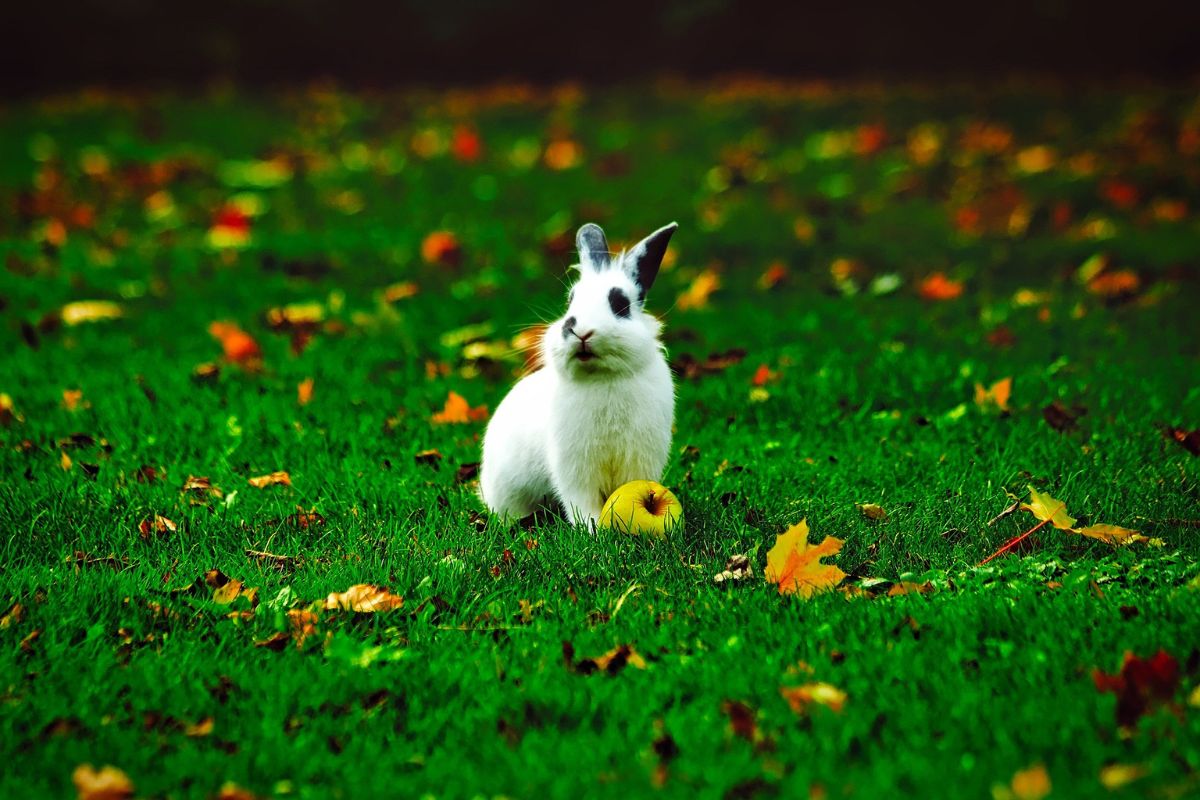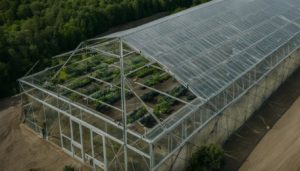Mulching your grass can be a great way to keep it looking its best. Not only does this method of gardening help protect the soil from erosion, but it also helps retain moisture and reduce weeds!
But really, is mulching good for grass?
In this article, I’ll explore the pros and cons of using mulch in your garden so you can decide if it’s right for you. I’ll look at how mulching impacts water retention, weed growth, and other factors that affect your lawn’s health.
So, let’s dive into the details and see what kind of difference mulching can make to your yard!
Benefits Of Mulching
Mulching is an excellent way to protect and improve your lawn. What are its specific benefits?
Mulching is a great investment in the health of your grass, as it can provide organic nutrients, soil aeration, water retention, pest control, and aesthetic appeal.
Layer Of Protection
Mulching is like giving your grass a warm and cozy blanket. It helps to protect the soil underneath from extreme temperatures, pests, and weeds.
Soil Structure
Applying mulch can help provides beneficial microorganisms to the underlying soil, improving its overall structure – including pH.
What’s more, applying mulch aerates the soil, allowing it to breath. Just like humans need oxygen to survive, so does grass!
Moisture Levels
Organic mulch helps keep moisture levels balanced by reducing evaporation of water from the soil, which makes irrigation easier.
Prevent Weeds
When applied thickly enough (generally at least two inches deep), mulch prevents weeds from growing and competing with your grass for vital resources like sunlight and water.
Drainage
Mulching also improves soil structure by improving its drainage capacity which reduces runoff after heavy rainfalls.
Not only does mulching help reduce flooding issues on your property, but it’ll also ensure that your grass gets all the nutrients it needs without overwatering or underwatering it.
Aesthetic Appeal
With all the above benefits, there’s no doubt that you’re gonna end up with a lush green lawn with unmatched curb appeal and adds value to any home!
Types Of Mulch
There are many types of mulch that can help keep your lawn healthy and looking great. Each type of mulch offers different benefits depending on the needs of your specific landscape.
Popular choices include:
- Shredded bark – provides insulation against extreme temperatures.
- Grass clippings – an organic source of nitrogen fertilizer.
- Pine needles – add acidity to the soil.
- Compost soil – helps retain moisture in dry climates.
- Straw mulch – a great option for keeping weeds at bay.
So no matter what kind of yard or garden you have, there’s sure to be a type of mulch to fit your needs!
Best Practices
Mulching can help your grass thrive, but it’s important to use the right techniques.
Watering
Watering should be done sparingly and carefully as too much water will cause the soil pH to drop and make it difficult for nutrients to penetrate the root system.
Pest Control
Pest control is a must if you want healthy turf; by using mulch you can reduce pest infestation while also providing insulation from extreme temperatures.
Weeding
Weeding methods such as hand-pulling and spot-spraying are essential in keeping weeds under control.
Mulch comes in to slow the growth of weeds that have already sprouted.
Fertilizing
Fertilizing tips include adding organic matter like compost or manure twice per year – both of which work best when paired with mulch.
Knowing how to properly care for your grass with mulch isn’t always easy– there may be potential downsides depending on your situation. Read on!
Potential Downsides
Mulching is a great landscaping tool for many kinds of grass, but it does come with some potential downsides.
Overwatering
Overwatering is always a risk when mulching because soil can be more prone to retaining water and becoming soggy.
Soil Compaction
Compacted soil can also become an issue if the mulch layer is too thick.
Invasive Grass Species
The invasive species living in the mulch can take over your lawn if you don’t keep up on maintenance regularly.
Environmental Pollution
Chemical runoff from fertilizer will flow into nearby bodies of water or seep into groundwater which could lead to contamination.
Rise In Acidity
Acidity levels in the soil may increase due to certain types of mulches, leading to unhealthy turfgrass growth.
So while there are benefits associated with using mulch on your lawn, make sure you weigh out all possible negatives before starting your project to ensure long-term success!
Conclusion
Mulching is a great way to give your grass the nutrients it needs to stay healthy and lush. You now know what types of grass are best suited for mulching, how often you should do it, and just how much mulch to use.
And while mulching isn’t suitable for all climates, there’s no doubt that it has some major environmental benefits too. When done right, mulching can be like giving your lawn a hug – helping retain moisture in the soil and keeping pesky weeds at bay.
It also gives your garden an extra bit of sparkle; as if each blade was coated in glitter every time you step foot on it! As if that wasn’t enough, the rich layers of organic matter provide essential nutrition for both insects and plants alike.
In conclusion, when done correctly and consistently, mulching is a sure-fire way to keep your yard looking its absolute best! So why not take the plunge today? With just a few simple steps – including selecting the right type of grass and using the correct amount of mulch – you can make sure your front or backyard looks (and feels!) beautiful any day of the week!
Frequently Asked Questions
What Type Of Grass Is Best Suited For Mulching?
When it comes to deciding which type of grass is best suited for mulching, there’s no set-on-stone answer. It all depends on properly preparing the soil and selecting the right kind of mulch.
By understanding composting techniques, weeding strategies and proper application of mulches, you can create a lush lawn that will thrive with each passing season.
Whether you’re looking to give your yard an easy makeover or want a more sustainable approach to gardening, mulching can be just what the doctor ordered!
How Often Should I Mulch My Grass?
When it comes to mulching your grass, the frequency of application is key.
Applying a layer of composting or fertilizing mulch every two months can help in weed control and soil aeration, while also adding vital nutrients for healthy growth and development.
For best results, mow your lawn regularly before applying a fresh layer of mulch as this will ensure maximum coverage.
When done correctly and at the right intervals, regular mulching can keep your lawn looking lush and green!
How Much Mulch Should I Use?
‘You can’t put a price on the perfect lawn, but you can certainly get close!
When it comes to mulching your grass, there’s no one-size-fits-all approach. It depends on factors like soil type, aerating needs and water conservation goals.
Generally speaking, lay down about three inches of mulch per season for optimal results.’
The adage ‘you get what you pay for’ rings true here – investing in quality organic materials will give your yard that lush look while also being drought resistant and fertilizing the soil.
Is Mulching Suitable For All Climates?
Mulching can be suitable for all climates.
However, it’s important to take into account your local climate when deciding how much mulch to use, because too little or too much can cause issues with plants’ health in different areas.
What Are The Environmental Benefits Of Mulching?
Mulching can be an absolute game-changer for the environment!
Not only does this simple process reduce weeds, conserve water, and improve fertility in soil – it also works wonders to improve air quality.
With mulching, you get incredibly reduced watering needs (up to 50%) compared to traditional methods; plus, with improved fertility comes a decrease of harmful fertilizer runoff.
Now that’s something worth celebrating!
Photo by 12019.


